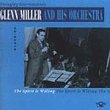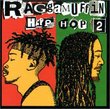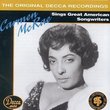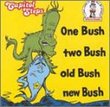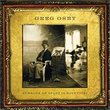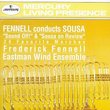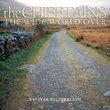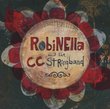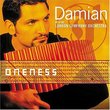| All Artists: Dizzy Gillespie Title: Complete Rca Victor Recordings 1947-1949 Members Wishing: 2 Total Copies: 0 Label: RCA Original Release Date: 1/24/1995 Release Date: 1/24/1995 Genres: Jazz, Pop, Latin Music Styles: Latin Jazz, Swing Jazz, Bebop Number of Discs: 2 SwapaCD Credits: 2 UPC: 078636652825 |
Search - Dizzy Gillespie :: Complete Rca Victor Recordings 1947-1949
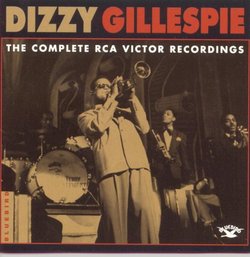 | Dizzy Gillespie Complete Rca Victor Recordings 1947-1949 Genres: Jazz, Pop, Latin Music
These two Diz discs bookend two-years'-worth of late-'40s Gillespie orchestra recordings with some earlier Teddy Hill Orchestra and Lionel Hampton Orchestra sides. Actually, the '40s Gillespie-helmed recordings of "Manteca... more » |
Larger Image |
CD DetailsSynopsis
Amazon.com These two Diz discs bookend two-years'-worth of late-'40s Gillespie orchestra recordings with some earlier Teddy Hill Orchestra and Lionel Hampton Orchestra sides. Actually, the '40s Gillespie-helmed recordings of "Manteca" and "Anthropology" begin the first disc, but that's kind of a sequencing quirk. Also included here are later Metronome All-Stars baubles. Here's a generous and savory taste of Gillespie ascending. --Steven Stolder Similar CDsSimilarly Requested CDs
|
CD ReviewsCan we have a remaster? kkase | St. Louis, MO USA | 12/13/2005 (4 out of 5 stars) "Of course this is a fine collection. Of course Dizzy's big band in the forties made some fantastic music. Of course this is an indispensible part of jazz history. But oh, the sound... Previous issues of this music on both CD and vinyl far surpass this one in terms of sound quality. The dreaded nineties-era noise reduction technology is all over this music, taking great hunks of sonic elements away from these vital performances. Since Bluebird corrected similar problems by issuing the Blanton/Webster sides by Duke Ellington, should they not do the same for these great records?" Oop-Bob-Sh-BAM!! madamemusico | Cincinnati, Ohio USA | 11/22/2004 (5 out of 5 stars) "From the first time I heard Dizzy's big band, on a now-defunct RCA Vintage LP ("The Bebop Era"), I was hooked...then I found out that my father had heard the band for FREE when he worked at the Metropole in NYC on 52nd Street...and HATED it because Dizzy didn't play like Sammy Kaye (his favorite band)!! How I envied and disliked him for that!! These innovative Gil Fuller arrangements, in which the entire trumpet section swung like five Dizzies, are simply staggering. The music swirls and eddies, jumps and dives like a hyperactive jazz dancer. And all the soloists are fabulous: inventive, original, highly swinging. The jam sessions at the Metronome All-Star sessions are also very historic, with a trumpet section of Dizzy, Miles Davis and Fats Navarro, all trying to sound like Dizzy in their solos (and succeeding!), as well as scintillating piano solos by the brilliant but anti-social Lennie Tristano. All in all, an exciting and important album that no jazz lover should be without." Simply Smokin'! George Grella | Brooklyn | 06/02/2000 (5 out of 5 stars) "Here it is, the best Dizzy Gillespie set out there. This music is distinct from the Parker/Gillespie Quintet, as it features Dizzy's ultra-pwerful big band and the founding tunes of Afro-Cuban jazz, with the great Chano Pozo. The sheer exuberance of Dizzy's personality is all over these recordings, from the opening seconds of 'Manteca,' to the fascinating pre-bop recordings with Teddy Hill and Lionel Hampton, where Dizzy umistakbly shines. The good humor of the vocal tracks is irrepressable too! This is an essential part of a jazz fans library, and you'll love every cut."
|

 Track Listings (22) - Disc #1
Track Listings (22) - Disc #1